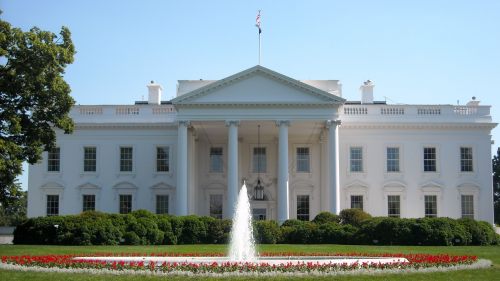Paramount’s New Diversity Initiative Is Major But Vague
Inclusion is a big deal in Hollywood at the moment - or at least, it's becoming a bigger deal. Ever since Frances McDormand dropped her "inclusion rider" bomb in her acceptance speech at last year's Academy Awards, and to a lesser extent since before even that, the movie industry has been paying greater attention to representation both in front of and behind the camera. Granted, "greater attention" is a low bar to clear when the attention was as nonexistent as it was to begin with, but progress is progress.
Today's progress comes from Paramount Pictures, whose CEO Jim Gianopulos announced, via a company-wide email, a plan to reassess the studio's representation in "our storylines, our talent in front of and behind the camera, our vendors and our shooting locations." The full email follows:
TO: Paramount Employees
FROM: Jim Gianopulos
DATE: February 20th, 2019
Paramount Family,
I want to follow up on an important topic that I touched on in this morning’s Spark welcoming remarks. I am proud to announce a new commitment we are making at the studio that we hope will have a broad ranging impact across our company culture and our broader community.
At Paramount, we believe that in order to create content that reflects and entertains our global audiences, we must be dedicated champions of diversity and inclusion. We recognize that we are on a journey, and we haven’t yet reached our destination. To continue to build on our commitment, as part of the development and green light process, our productions will be required to complete a plan designed to enhance access and opportunities for groups historically underrepresented in the media industry. Special attention will be paid to our storylines, our talent in front of and behind the camera, our vendors and our shooting locations.
After a project is completed, the production team will report their results to a newly established Content Creation Council, which will compile and analyze all data to develop metrics, establish benchmarks, and ensure ongoing accountability. As an organization, we hope this is a big step toward progress by showing that we are committed to doing better each and every day.
This commitment comes on the heels of our announcement that we will be participating in The TIME’S UP and Annenberg Inclusion Initiative’s 4% Challenge, to announce a project with a female director on a feature film in the next 18 months. We are confident that we will meet this commitment not only in our film division, but in our TV, Animation and Players divisions as well.
Together, we strive to create a community that reflects the culturally-rich and diverse world in which we live. You will hear more about these initiatives as we progress.
Best,
Jim
Much of this announcement, of course, reads pretty vaguely. There's "a plan" to expand opportunities for the underrepresented. They're establishing a "Content Creation Council." Making "a big step." It's unclear what the plan will entail, what the council will enforce, and how far the step will go. The council, for example, will only examine productions after they've been completed, though its very existence will hopefully provoke producers into being more equitable in their hiring.
The only concrete-ish promise Gianopulos makes here is to announce a female-directed project in the next year and a half. Though he says the company is likely to do that across multiple divisions, it is, again, a low bar to clear. On the other hand, the vagueness of the announcement suggests an all-encompassing view of inclusiveness - mentioning vendors and shooting locations, for example, suggests that international productions could be more numerous under Paramount than before.
The hilarious thing about Paramount moving in this direction - hilarious because it's guaranteed to have silly people decrying its "political correctness" - is that its social-responsibility angle probably comes as a secondary bonus to the business sense of increasing representation. International audiences now make up more of major movies' box office than American audiences do, and recent blockbusters led by women and/or minorities have shown that - surprise, surprise - there's money to be made from those audiences. Plus, it goes without saying that in a connected and socially-aware world, the PR value of being inclusive is pretty damn high. These realisations make up one rare way in which raw capitalism actually has a positive effect.
Hopefully for Paramount, this move will help turn around what in recent years has been a flagging business, by a major studio standard. The only two Paramount films that cracked last year's Top 20 were latest Mission: Impossible - Fallout and Bumblebee, the latter of which only just squeaked in at #19. In 2017, only one Paramount film - Transformers: The Last Knight - made the top 20, and in 2016, its highest-grossing film was Star Trek Beyond, at #26. All of these were surrounded by a huge number of box office disappointments, even if some of them were critically well-received, as well as multiple films dumped on Netflix at the last minute. It's telling that its upcoming slate is largely dominated by established brands. Hopefully, greater international box office will help prop the company up, so it, too, isn't absorbed by Disney.
That's all a very long-winded way of saying that this is good news - even if it's good news that takes a number of years to have an effect.



